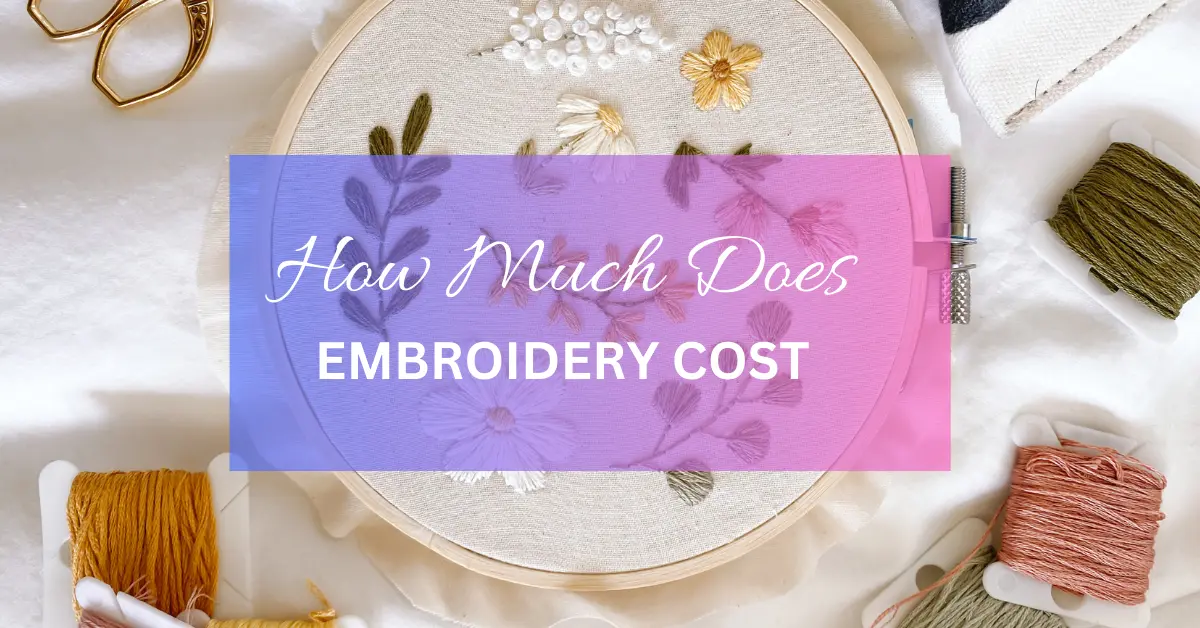How Much Does Embroidery Cost? A Comprehensive Guide
A Quick Answer By Embroidery Master’s: Embroidery costs vary depending on design complexity, stitch count, fabric type, thread quality, and additional embellishments.
Hand embroidery is labor-intensive and pricier, while machine and computerized embroidery offer more cost-effective options for bulk orders.
DIY embroidery costs depend on the kit or individual supplies you choose. To make an informed decision, it’s essential to understand these factors and obtain multiple quotes from embroiderers.
Introduction
Embroidery is a timeless craft that adds a touch of elegance and personalization to various items, from clothing and accessories to home decor.
Whether you’re considering getting a custom embroidered piece or exploring the idea of starting an embroidery project yourself, one of the critical questions is: How much does embroidery cost?
In this article, we’ll delve into the factors that influence embroidery costs, so you can make informed decisions and bring your creative visions to life without breaking the bank.
Embroidery is more than just needle and thread; it’s an art form that has evolved over centuries. From intricate designs to bold logos, embroidery adds a unique touch to various items.
But how much you’ll pay for embroidery depends on multiple factors.
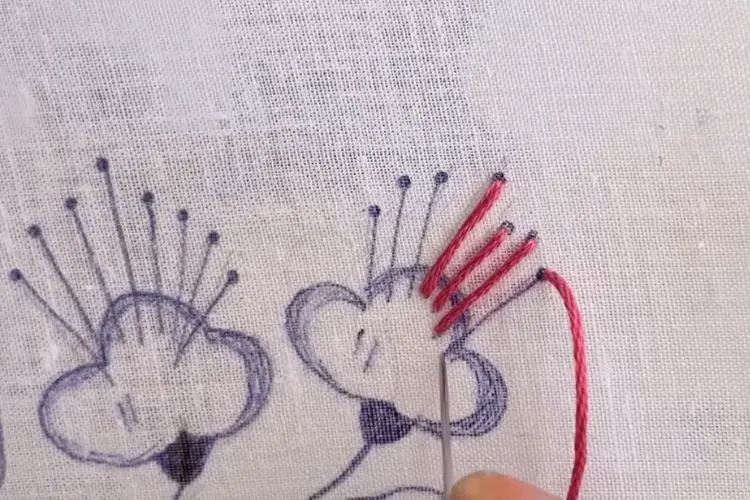
Factors Affecting Embroidery Costs
1. Design Complexity
The complexity of the design plays a crucial role in determining the cost. Intricate patterns with numerous details will require more time and skill to embroider, which can increase the overall cost.
2. Stitch Count
The number of stitches required to complete the design directly affects the cost. Each stitch adds to the time and effort needed to finish the project.
3. Fabric Type
Different fabrics require different techniques and treatments. Delicate fabrics may need special handling, impacting the cost.
4. Thread Quality
Thread quality varies, and higher-quality threads often come at a premium. The thread’s durability and appearance can influence the cost.
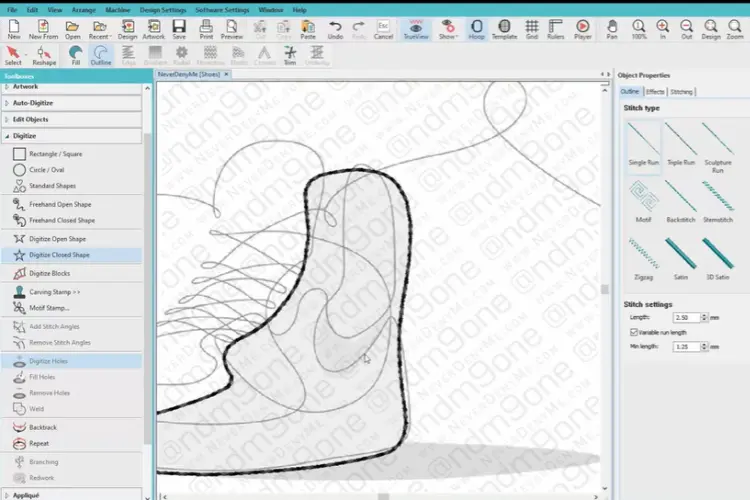
5. Additional Embellishments
Beads, sequins, and other embellishments can enhance the design but may also add to the cost due to the extra work involved.
6. Quantity
Ordering in bulk may reduce costs per piece, making it an ideal option for businesses and events.
7. Embroidery Method
Hand, machine, and computerized embroidery have different cost implications due to the skill and time involved.
8. Turnaround Time
Urgent orders or projects with tight deadlines may incur rush fees, impacting the overall cost.
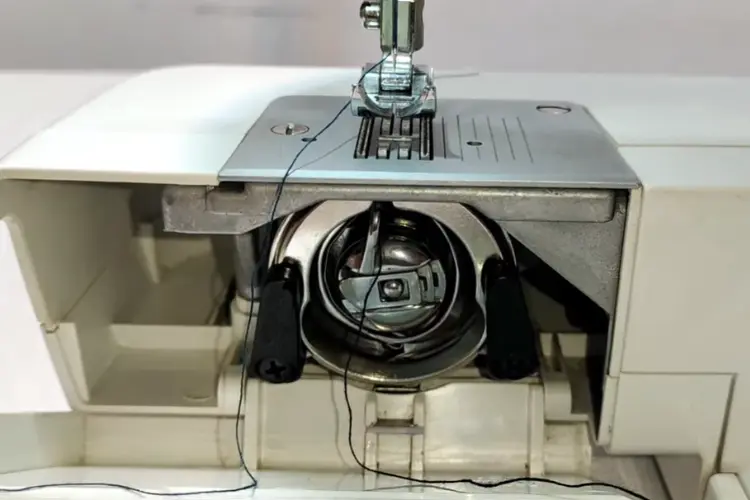
Types of Embroidery
1. Hand Embroidery
Hand embroidery is a labor-intensive process that involves skilled artisans creating intricate designs by hand.
Due to the meticulous work, hand embroidery tends to be more expensive.
2. Machine Embroidery
Machine embroidery offers precision and speed, making it a cost-effective option for larger quantities.
Complex designs are achievable but may still increase costs.
3. Computerized Embroidery
Computerized embroidery involves digital designs read by embroidery machines.
While set-up costs can be high, this method is efficient for bulk orders.
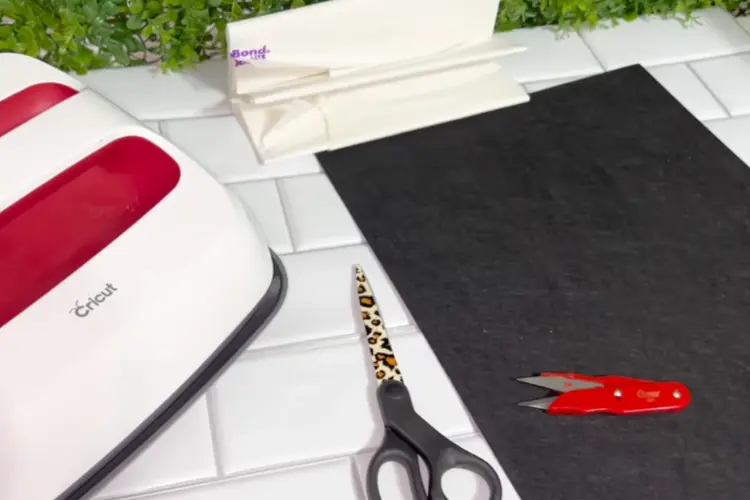
Getting Quotes from Embroiderers
When seeking embroidery services, obtaining quotes from multiple providers is advisable.
This allows you to compare prices, services, and quality before deciding.
DIY Embroidery Costs
1. Embroidery Kits
Embroidery kits provide beginners with the necessary tools and instructions. Costs vary based on the complexity of the equipment.
2. Individual Supplies
Purchasing individual embroidery supplies allows customization, but costs can add up quickly.
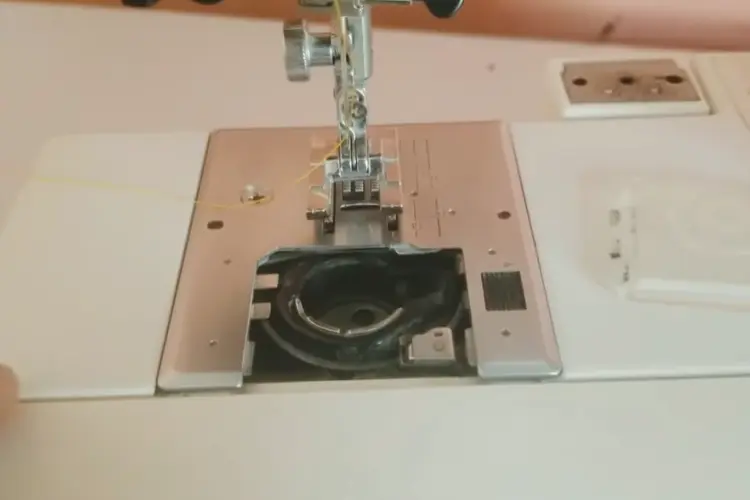
Calculating Return on Investment
Consider the purpose of the embroidered item. If it’s for personal use, weigh the cost against the value it holds for you.
For businesses, branded items can serve as practical marketing tools.
Conclusion
Embroidery costs are influenced by various factors, including design complexity, fabric type, and quantity.
Understanding these factors empowers you to make cost-effective decisions that align with your creative aspirations.
Check related videos on YouTube at Ricoma TV Channel:
Frequently Asked Questions (FAQs):
Simplify designs, use fewer stitches, negotiate bulk discounts, and avoid rush fees.
Natural fabrics like cotton are generally more affordable due to the ease of stitching.
Hand embroidery is intricate and costly, while machines are faster for bulk orders.
Yes, with an embroidery foot but limited complexity compared to dedicated devices.
Varies; simple projects take days, and intricate or bulk orders take weeks.
